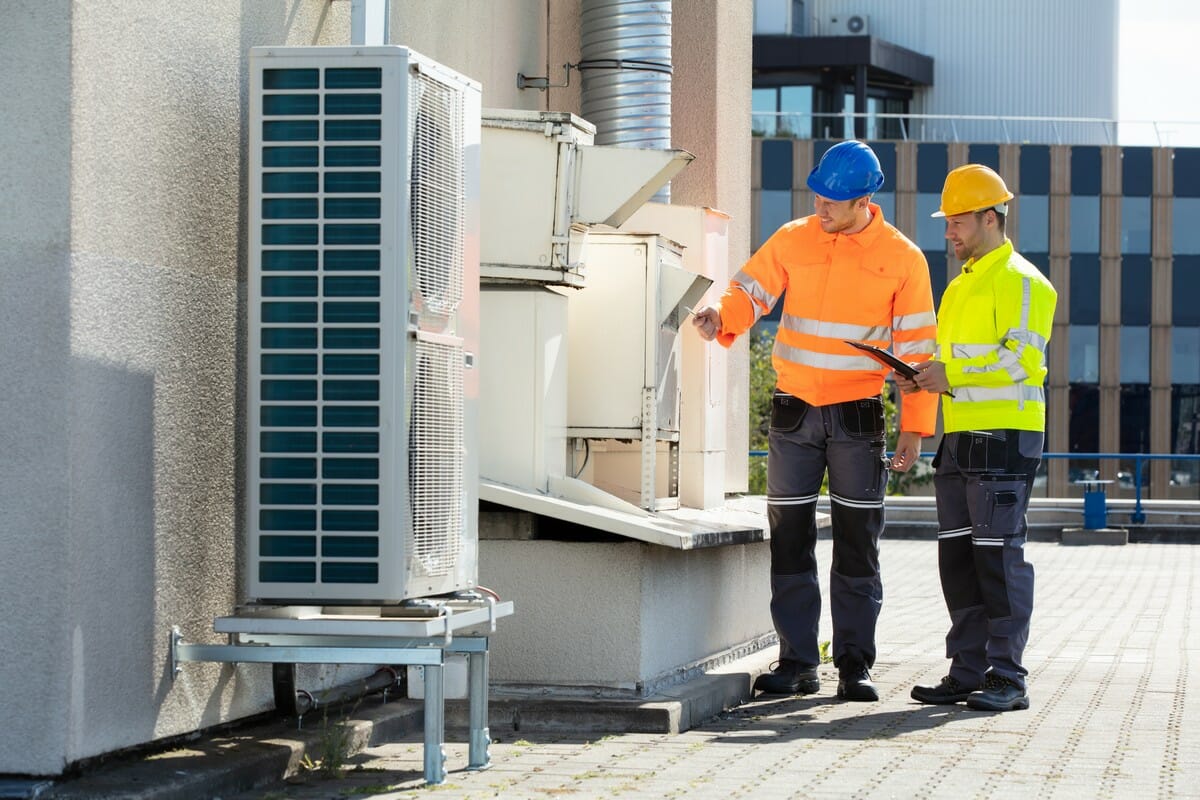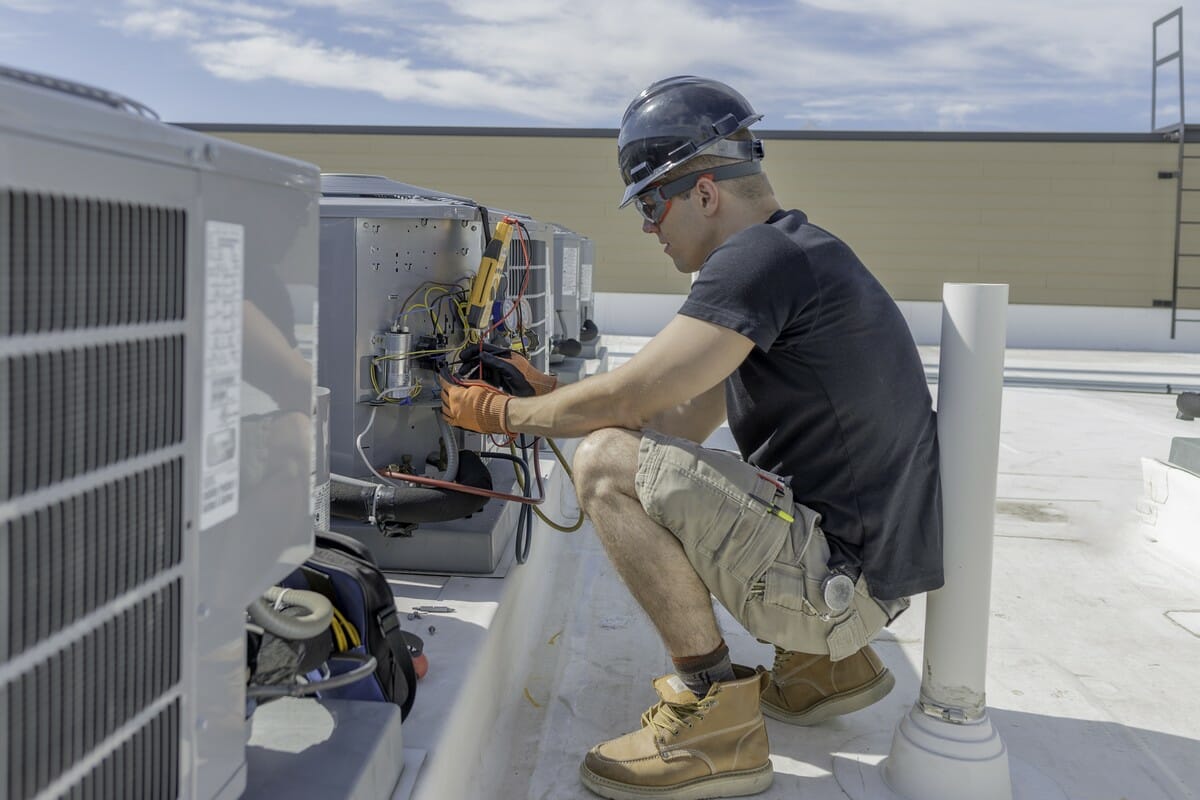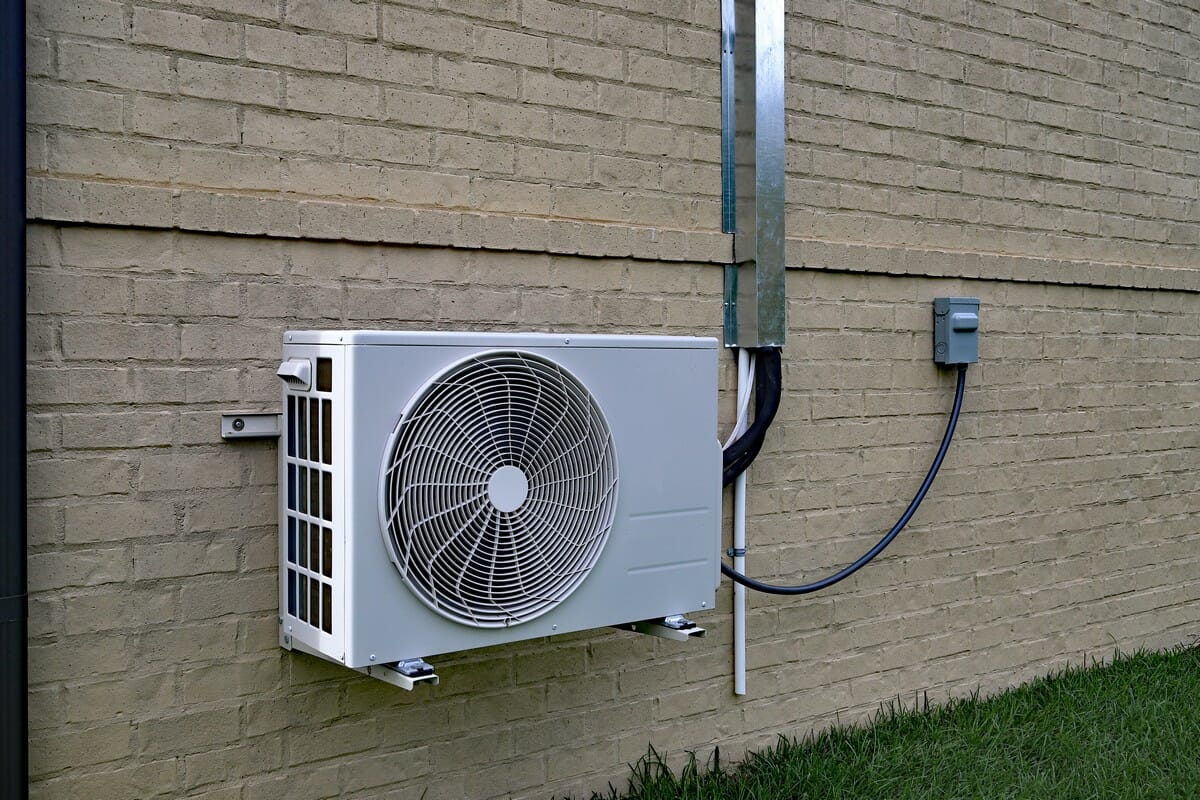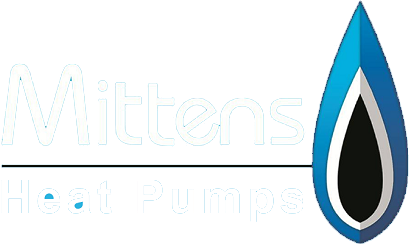Your guide to HVAC
Table of Contents
Why an HVAC Makes for the Best Heating

Nothing beats an HVAC when you are cooling your home. This air conditioning system is based on a principle you are very familiar with: heat is transferrable and the HVAC captures hot hair from your home and returns it as cool air.
As a heating device, it collects heat from outside and dissipates it internally, making it warm and cosy for your living or workspace. The result of this method is genuinely 4 times more remarkable performance. If you are not convinced about the wisdom in investing in an HVAC as a dual heating and cooling system, here are some more considerations to think about.
More Efficient Space Heating than Central Heating
In professional HVAC terminology, an HVAC – or heater, ventilator, and air conditioner – is specifically one piece of equipment which can be used to provide both heating and cooling to the same space. An HVAC works exactly as any air conditioner does in a very practical sense, only the cycle can be reversed so that the cold air goes outside, and the hot air stays inside. The air conditioner takes the heat from one side (the outside) of the house and transfers it to the other side (the inside) of the house. This offers a more effective system than standard central heating.
Apart from the space-saving advantages, the use of an HVAC has a very real economic and environmental advantage: An HVAC uses less power. This essentially means that an HVAC can serve the purpose of heating and cooling your living or working space without the high energy costs associated with regular cooling and heating systems being incurred.
Our Guarantee
- Over Six Years Experience
- Unrivaled Experience
- An Exceptional Service
- Unbeatable Value For Money
- Industry-approved Scaffolders
- A Full Range of Heat Pumps Services
- Professional, Reliable and Diligent
- 100% Safety and Satisfaction
Easier to Set Up
The thing about using HVAC heat pumps is that it is a breeze to set up. While it may not be easy enough to do as a DIY project, the installation and setup is easy, trouble-free and fast in the hands of a competent person, ensuring that your HVAC system is up and running in no time.
Of course, your building’s HVAC installation process will depend on the type of system you are installing, whether your system will include mini splits or a central packaged system, and whether your system is ductless or not. Our technicians will first visit the proposed site, explore your options with you and come up with an appropriate system that will meet your heating and cooling requirements.
Simpler Maintenance
If you want a no-fuss, home heating and cooling system then an HVAC is for you. They’re one of the most convenient pieces of equipment on the market. HVACs need less maintenance than the conventional air conditioner. Most of the basic system maintenance should be done periodically, once a year, which you can easily do on your own. On the other hand, a qualified contractor needs to check every three or five years to ensure that the system is working as it should.
The more energy-efficient the devices become the greater the long-term energy savings. Although the prices of HVACs can go up to even £45,000, this environmentally-friendly investment can help you save up to £1,500 a year.
Heating and Cooling
Heat pump HVACs are used as air conditioners most frequently. Using a remote control, wall monitor, or even a phone app, HVACs can provide space heating and space cooling at the touch of a button. Because of the nature of their design, this heating or cooling can be provided very quickly.
They provide very effective control over room temperature when installed to the right specifications and in the correct manner, are very quick to heat or cool a space, and then maintain the desired temperature. This will not only keep you cool or warm based on your personal preference but it will also work as a dehumidifier. That makes a heat pump HVAC an effective alternative to an air conditioner.
No Need to Waste Heat in Empty Rooms
While a standard air conditioner system consists of a single indoor and outdoor unit, you can connect multiple indoor units to a single outdoor unit using a series of dampers and independent thermostats.
An HVAC system not only gives you the freedom to choose the most suitable indoor model for each and every room in your home, it also improves outdoor aesthetics by reducing the number of outdoor units needed.
Whether you want to raise the temperature in the children’s rooms before sleep, or turn off the HVAC in the living room as you go out for the day, through individual control of the HVAC, you can change the temperature to match your comfort levels and guarantee that your HVAC only works as needed, where needed. That way, when no heat is required in empty rooms, this optimises energy savings.
Are you ready to start enjoying huge savings without missing out on your warm and cool air? Get a free, no-obligation quote from The Mittens Heat Pumps UK. Call 01273 257407 to get started.
We Are Also Available to Offer Heat Pumps Related Advice
What is Dual Zone HVAC?
Standard ventilation systems use one thermostat to control the entire home’s heating and air conditioning. Every room is similar in temperature.
This often led to fights for the thermostat as various family members attempted to change the temperature according to their individual needs. It also means that even if you haven’t been down there in weeks, you pay to heat or cool the basement.

The only option to control the temperature in different parts of the house is to physically close the vents. Sadly, this reduces ventilation, which will potentially pressure the HVAC system and shorten its life. This is where a dual-zone HVAC comes in.
A dual zoned HVAC system uses a series of dampers and separate thermostats for each area of the home. This allows the householder to set different temperatures all over the house. You no longer have to pay to heat or cool the basement or the bedrooms upstairs when not in use.
Heat Pump Type
What do I Have to Do to use the Dual Zone?
Zoned HVAC systems allow division of the building or the home into two or more separate zones. Such types of systems have greater control over the heating and cooling system, and provide individual temperature control in each environment. While zoning does not affect an HVAC system’s performance, it does allow the system’s most effective usage. Zoned systems will save customers an average of up to 30% of their costs for heating and cooling.
All that a zoned system requires is a control panel, thermostats, a bypass damper and zone dampers.
Zone Control Panel: The zone control panel is the main control system that connects the dampers, the thermostats and the HVAC.
Thermostats: The thermostats read the temperature in every home zone or space. If the temperature is too low or too high, to adjust the temperature of the area, it sends a signal right into the control panel.
Bypass damper: While it might not always be relevant to use a bypass damper, it is typically designed to alleviate air pressure in the ducts.
Zone dampers: In the ductwork, zone dampers are mounted to monitor and manage the flow of air to areas inside the room. These devices are wired into the control panel to a particular zone. The dampers automatically shut and open, based on the information the thermostats are sending.
Although it is relatively straightforward to install zoned HVAC units, it is definitely something that should be left to a professional. The technician will install the devices, connect the refrigerant-carrying lines and make the appropriate electrical connections. The technician needs the requisite relay wiring expertise to make the control panel open all the zones as the controls call for the distribution of the humidity. Depending on the scale and sophistication of the project, the installation process will take anything from one to three days.
How Many Zones can I Have?
Speaking to an HVAC expert can help you figure out how many zones your home needs. Many people divide their homes into two zones – up and down. However, one can set up each HVAC system to accommodate multiple zones, with each room functioning as a zone, which can be helpful, particularly if someone in your home likes a different temperature while they sleep in their bedroom.
Having a zoned HVAC for your home can be a perfect long-term investment. If you’re interested in knowing more about dual-zone HVAC, contact The Mittens Heat Pumps UK to get started. Get in touch by calling 01273 257407
Factors that Affect HVAC Service Life
Many things can reduce the life span of HVAC equipment, including:
- Poor maintenance culture
- Poor or defective components
- Overloading or under-loading of the system
- Improper installation procedures
- Improper use, such as heating or cooling with open windows and doors
- Installation in salty or corrosive environments.
Failure to maintain can result in quicker component wear and tear and a significantly shorter life span. HVAC systems can work longer with proactive maintenance programs, since minor faults are found before they require costly repairs. You can rely on us at The Mittens Heat Pumps UK for HVAC repair and servicing. It is the best way to make the system last longer.
We Are Also Available to Offer Heat Pumps Related Advice
Typical HVAC Lifespans
On average, an HVAC with preventive maintenance will last anything from 10 to 25 years.
Any HVAC system or equipment’s life expectancy depends on the preventive maintenance and repair done on them, as well as the type of equipment and the use.
You always want to have a qualified HVAC technician perform maintenance on your equipment at least twice a year to ensure that with few repairs, it lasts as long as possible.
Commercial HVAC
A commercial HVAC system is used for bigger spaces such as businesses, restaurants, sports complexes, and large establishments etc. A commercial HVAC helps control the temperature in your business place and makes it comfortable for both workers and customers. When you invest in a commercial HVAC, you can choose between ducted HVAC and ductless HVAC.
Ducted HVAC
Inside your building’s walls and ceilings are air ducts made of sheet metal in a ducted HVAC system. These ducts often serve your heating and refrigeration systems as well. Cooled or warmed air pass via the ducts from the central air conditioning unit or furnace, which is transmitted by vents to each room in the building.

Ductless HVAC
A ductless HVAC system, also known as a mini-split ductless system, has no ducts in the walls to distribute the air. The ductless air-conditioning system sends refrigerant directly to multiple small air handlers that are installed throughout your building instead of cooling the air with one primary indoor air handler and blowing it through ducts. Those air handlers individually remove heat from each room. They look like tiny boxes installed on each room’s wall or ceiling.
Because there are fewer components, ducted air conditioning systems are easier and less expensive to service. They just need cleaning sometimes. There is just the outdoor unit and the main indoor air handler.
On the other hand, ductless air conditioners have air handlers which require service in each room. Therefore, your attitude towards maintenance will play a role in whether you’re selecting ducted or ductless HVAC for your property.
Decide on your Heat Pump(s) Before Deciding on Ducted or Ductless (some better heat pumps might as well be ducted)
When looking for an HVAC system to cool your home or office, either an air conditioner or a heat pump HVAC will do the job. However, while air conditioners do not provide heating, heat pump HVACs do.
An HVAC can absorb heat energy from outside air, even at extremely cold temperatures, and transfer heat to the inside of the building, where it releases the heat into the air, thanks to a reversing valve in the outdoor unit.
An HVAC can heat and cool, but an air conditioner cannot do both, which is the main difference between the two systems. In fact, heat pump HVACs are available in ducted versions, and this may be better for you in terms of maintenance and initial purchase and installation cost.
Why not get expert advice from a competent person before making a decision on which to go for? Call 01273 257407 to speak to an expert today.
We Are Also Available to Offer Heat Pumps Related Advice
Residential HVACs
HVAC stands for air conditioning, ventilation, and heating systems. This piece of equipment is responsible for heating and cooling your house and typically includes components such as furnaces, air conditioners, ductwork, heat pumps, thermostats and other devices that work together for home comfort.
Either Source Heat Pump Works with HVAC
Nowadays, when you want to install an HVAC system in your house, you can combine multiple functions and at the end of the day you will have to purchase fewer devices and spend a lot less time on the installation process.
HVAC heat pumps are capable of both heating and cooling, and with the proper configuration, either geothermal ground source or air source heat pumps can work successfully with an HVAC without the need for an additional system.
Smaller Units Take up Less Room
A residential HVAC unit is much smaller when compared to a commercial HVAC system as it needs to cool or heat a much smaller space. This means that you don’t need as much room for installation and placement as you would with a commercial HVAC unit. Even small, modest family homes can create enough space for a fully functional HVAC unit.
If you are in the market for an HVAC unit, whether commercial or residential, you need to hire a competent person to get it done right. For professional advice or installation, call The Mittens Heat Pumps UK on 01273 257407. We are dedicated to providing you with the highest quality and most energy-efficient heating, air conditioning, and geothermal systems available.
Get in Touch With us for Your Heat Pump Hire Quotes
